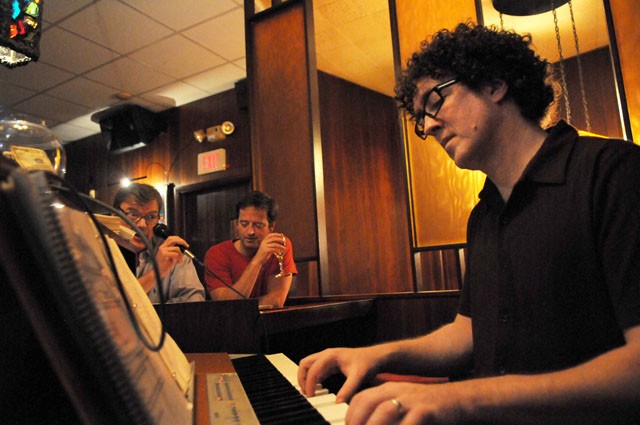The Detroit Symphony Orchestra has just been added to the long list of similar organizations that have gone on strike over the past few months. The Minnesota Orchestra has not been presented with 33- to 42-percent wage drops like its Motor City counterpart, so it continues to operate without a stitch.
But what these developments say about the appreciation of professional musicianship in general is disconcerting. Is there a lack of support for absolute career devotion to this area of the arts? Peter Mercer-Taylor, associate professor of musicology at the University of Minnesota, doesnâÄôt think so.
âÄúIn a certain sense, the modern professional symphony orchestra is not so unlike the modern professional sports team; these are gifted, skilled individuals who can command sufficiently high salaries that not every city will be able to have one at all,âÄù Mercer-Taylor said. âÄúThe trouble is that the analogy breaks down when we start to look at what the symphony orchestra actually provides its fans. If professional baseball teams all strike âÄî as has happened âÄî there is no professional baseball to be enjoyed. Even die-hard fans arenâÄôt likely to sit around watching reruns of 10-year-old games.âÄù
The support, Mercer-Taylor said, still exists for these musicians.
âÄúItâÄôs not like a strike that will cause baseball to cease, or cars to stop rolling out of the factory, or buses to stop running,âÄù he said.
Andrew Crowley, pianist at NyeâÄôs Polonaise, agrees with Mercer-Taylor. He has, however experienced a different relationship with the music industry, relying on smaller gigs to make ends meet. Whether functioning as the organist at St. Paul Saints games, producing for other musicians or working on solo projects, Crowley stresses that the arena is always competitive.
âÄúThe big thing for me is to have as many of these [gigs] coming in as I can. There may be 25 other people trying to get that same, low-paying end result.âÄù
Both Crowley and Mercer-Taylor believe that the key to success in the music industry, as with anything else, is the creation and sustainment of quality material. The inherent problem with this is that so many individuals are intent on creating the next groundbreaking sound, whether it is in the classical, pop, metal or another arena.
âÄú[People] lay down money for the music that moves them, thatthey can immediately connect with emotionally,âÄù Mercer-Taylor said.
And what advice do these guys have for students of music at the University of Minnesota?
âÄúThe best music-oriented college education is one that inspires you to think of music as one of the liberal arts,not as a professional trade. The trick is to be sure that one has also learned along the way how to write papers, how to find, read, and make sense of books,how to think critically and flexibly,âÄù Mercer-Taylor said.
âÄúYou also make connections and learn a lot about networking, quite frankly. IâÄôve taken classes that have quickly evolved into collaborations all over the planet,âÄù Crowley added.
Relying on stardom after graduating with any liberal arts degree is entirely unrealistic. Music students must work as hard as would an aeronautical engineering major. Then, maybe that music degree wonâÄôt be as useless as your parents thought.








